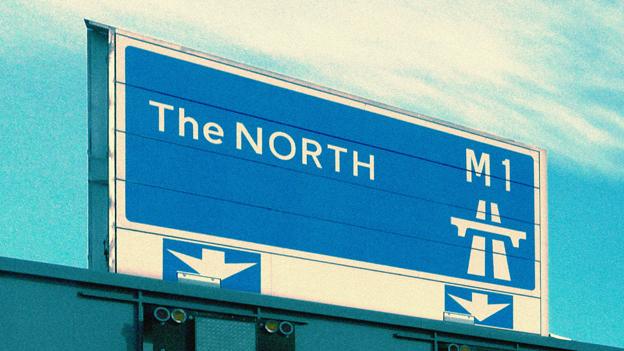George Osborne appeals to Labour voters in conference speech
- Published
George Osborne: "We must be prepared for whatever the world throws at us"
George Osborne has told Conservatives to "extend our hand" to people who feel "completely abandoned" by Labour's new leadership.
In his conference speech in Manchester, the chancellor said the Tories had created a "new centre ground" and were "the true party of labour".
He also said councils in England would be able to set and keep hold of their share of £26bn in business rates.
Former Labour minister Lord Adonis is to lead a new infrastructure body.
BBC assistant political editor Norman Smith said Mr Osborne's speech went "way beyond" a conventional chancellor's address and appeared focused on the "next prize" - succeeding David Cameron as Conservative Party leader.
Among key conference developments:
Plans to sell shares worth £2bn in Lloyds Bank were announced by the chancellor. The shares will be sold to private investors next spring.
The business rates shake-up was, Mr Osborne said, "the biggest transfer of power to local government in living memory"
89 local authority pension funds in England and Wales are to be combined into six regional funds to encourage them to invest in major infrastructure projects
There will be infrastructure investment of £5bn funded by asset sales with an airport expansion decision by Christmas
Health Secretary Jeremy Hunt says the government is right to press ahead with cuts to tax credits, saying they send a "cultural signal" the UK must become as hard working as China
Follow live reaction and coverage of the Conservative Party conference
Mr Osborne said while he had grown up in London, he had been "changed" by representing a constituency near Manchester and convinced of the need to increase investment in the North of England.
The Conservatives needed to understand the "reservations" of people who did not back them at the election, he said.
"So to these working people who have been completely abandoned by a party heading off to the fringes of the left, let us all here today extend our hand.
"Do you know what the supporters of the new Labour leadership now call anyone who believes in strong national defence, a market economy, and the country living within its means?
"They call them Tories. Well, it's our job to make sure they're absolutely right."

Analysis by Laura Kuenssberg, BBC political editor
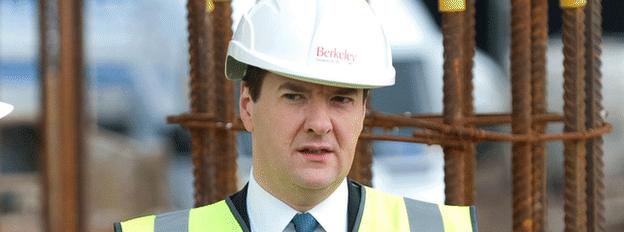
"We are the builders." We know that George Osborne is fond of appearing in a hi-vis jacket on a building site, he's fond of talking about infrastructure, he's fond of appearing to be a man of action, and making things happen.
But what he is trying to do is not just build roads and railways, but find a way to build a Conservative majority in 2020 and beyond.
The way he and David Cameron believe it can happen is by occupying as much of what they describe as the "common ground", to use their election victory to persuade millions of voters in the middle they are the sensible majority.

Mr Osborne, who said the Conservatives were "now the party of work, the only true party of labour", also called for new ways to fund infrastructure projects.
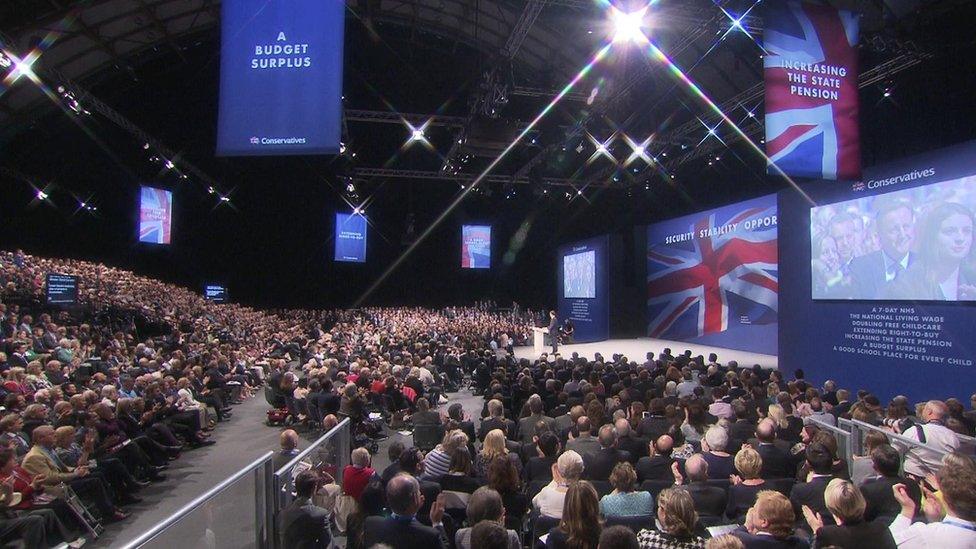
The hall was packed for Mr Osborne's speech
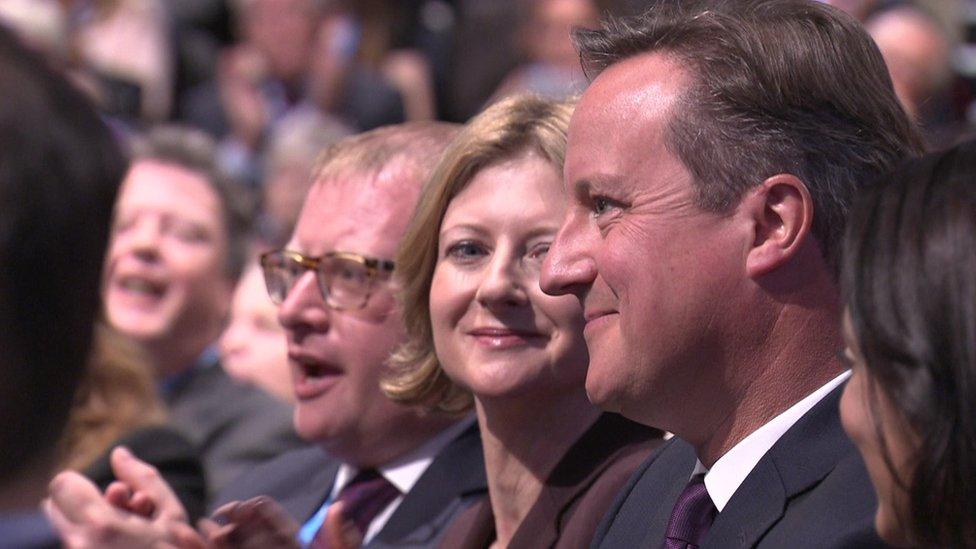
George Osborne paid tribute to David Cameron's leadership
His central proposal - which will only apply in England - involved business rates, which are charged on most non-residential properties like factories, offices and shops.
They are currently set by central government, collected by councils and then redistributed by Whitehall across the country.
Mr Osborne said this "merry-go-round" would be ended, with local authorities retaining the proceeds locally and able to cut rates.
George Osborne: "We'll govern for the many."
Areas with elected mayors will have an additional power to raise money by increasing rates, he said. Scotland, Wales and Northern Ireland have their own business rate systems.
The Local Government Association said the reforms were "great news".
Chairman Gary Porter said: "With greater local control, councils will have flexibility to reduce business rates for the types of shops and businesses that residents want in their high streets and neighbourhoods."
Shadow chancellor John McDonnell said Labour would look at the detail of Mr Osborne's business rates proposals, but warned safeguards were needed so "poorer areas of the country do not lose out on vital revenue".
In his speech, Mr Osborne also acknowledged Labour's role in proposing a National Infrastructure Commission, saying he was "delighted" Lord Adonis, policy chief in Tony Blair's government before becoming transport secretary under Gordon Brown, had agreed to lead it.
Lord Adonis has resigned the Labour whip and will sit as a crossbencher in the Lords as he takes on his new role.
Earlier the chancellor also defended the government's changes to tax credits, after some Conservatives called for a rethink.
Critics include senior backbencher David Davis, who compared them to the poll tax, and ex minister David Willetts, who likened the changes to Labour's abolition of the 10p tax band in 2007.
Mr Osborne said a typical family on the minimum wage would be better off, with the changes offset by the new National Living Wage.
'Big improvements'
And he insisted other European leaders were not too preoccupied by the migrant crisis to consider the UK's demands for EU reform ahead of its membership referendum.
"I'm not saying it's the only thing they're thinking about, but they are thinking about it," he added.
Lord Adonis, a Social Democrat councillor and Liberal Democrat election candidate before joining Labour, said: "Without big improvements to its transport and energy systems, Britain will grind to a halt."
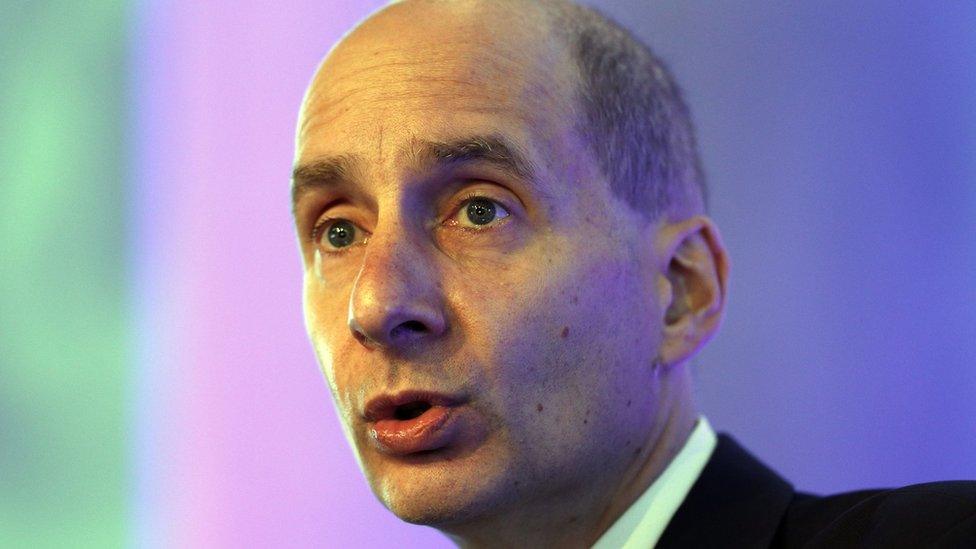
Lord Adonis will become an independent peer to take on his new role
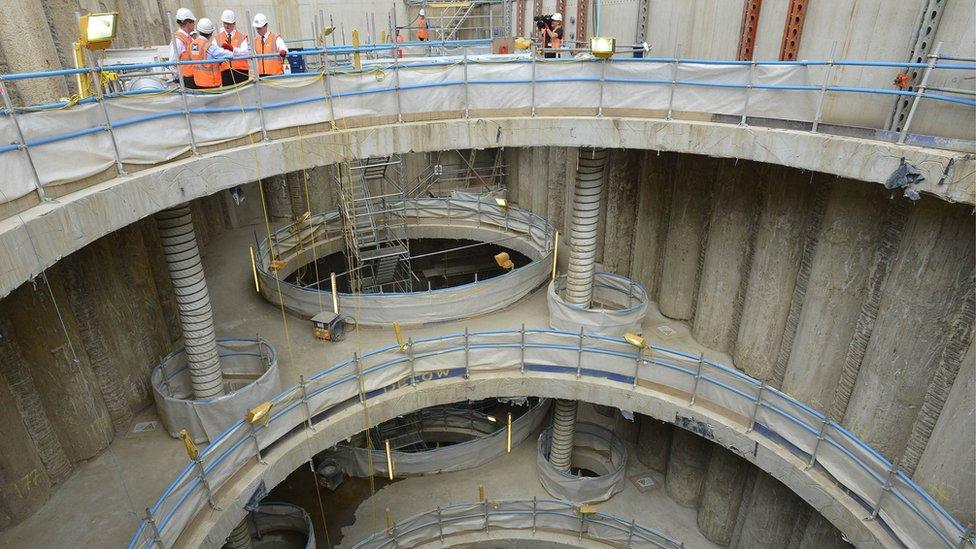
The infrastructure commission will initially focus on London's transport system, connections between cities in the north of England, and updating the energy network - funded by selling off land, buildings and other government assets.
It will start work immediately and will produce a report at the start of each five-year Parliament containing recommendations of projects.
George Osborne hopes spending on infrastructure, like transport, will help benefit the whole economy, reports Carole Walker
Asked if the new scheme would make it harder for councils and individuals to oppose projects, Mr Osborne told BBC Breakfast there were "always going to be people who don't like new building, don't like new roads, don't like new railways near them".
"But the truth is if we hadn't built railways in the past, or motorways in the past, that would have been a disaster for this country, and it would be a disaster for this country if we stop building now," he added.
John Cridland, director-general of the CBI business lobby group, said: "Updating the UK's infrastructure is critical to sustainable growth and productivity, and we've long called for an independent body to assess our long-term needs."
- Published4 October 2015
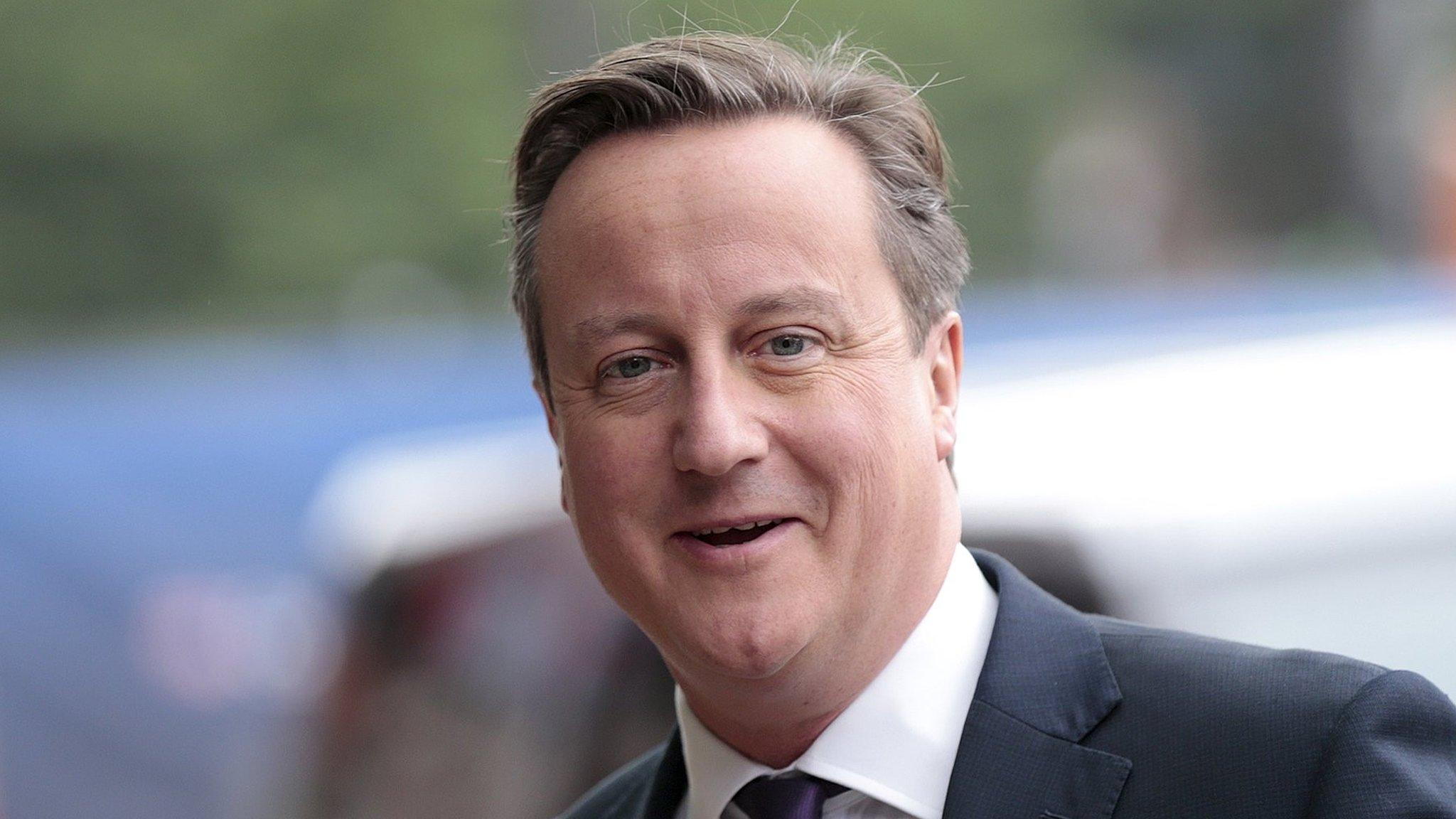
- Published4 October 2015
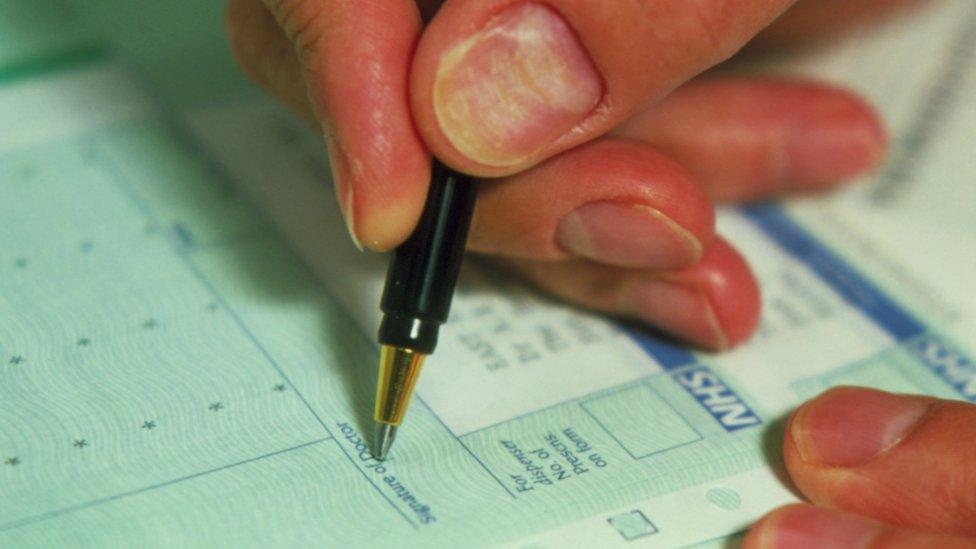
- Published4 October 2015
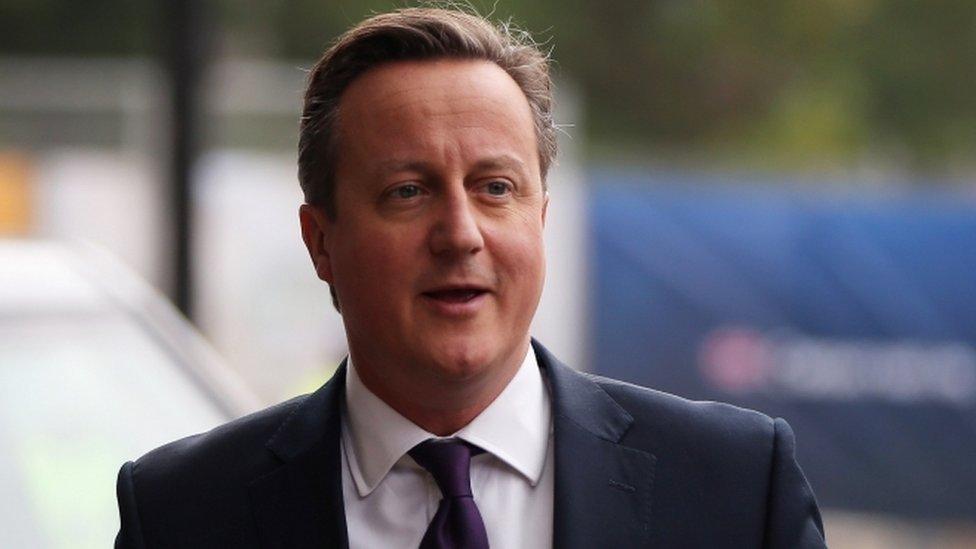
- Published4 October 2015
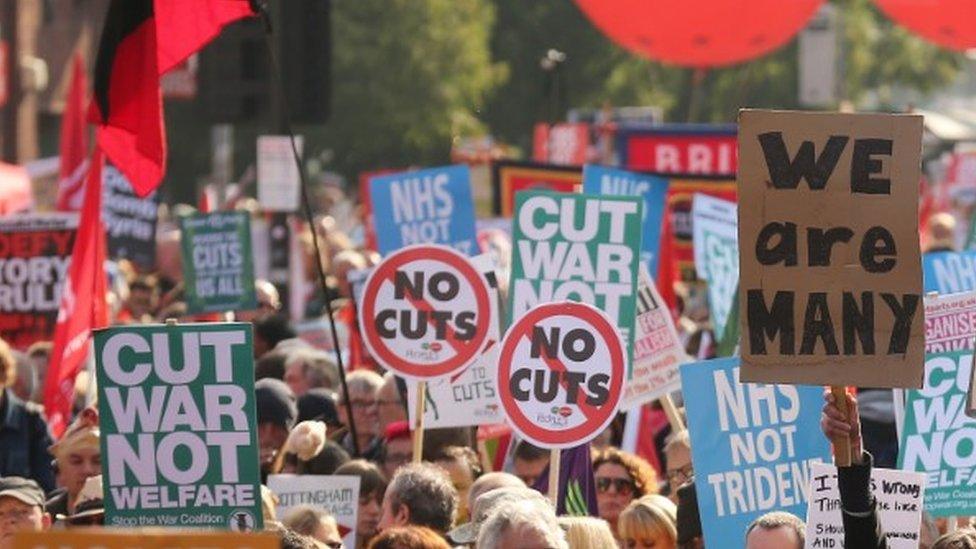
- Published23 September 2015
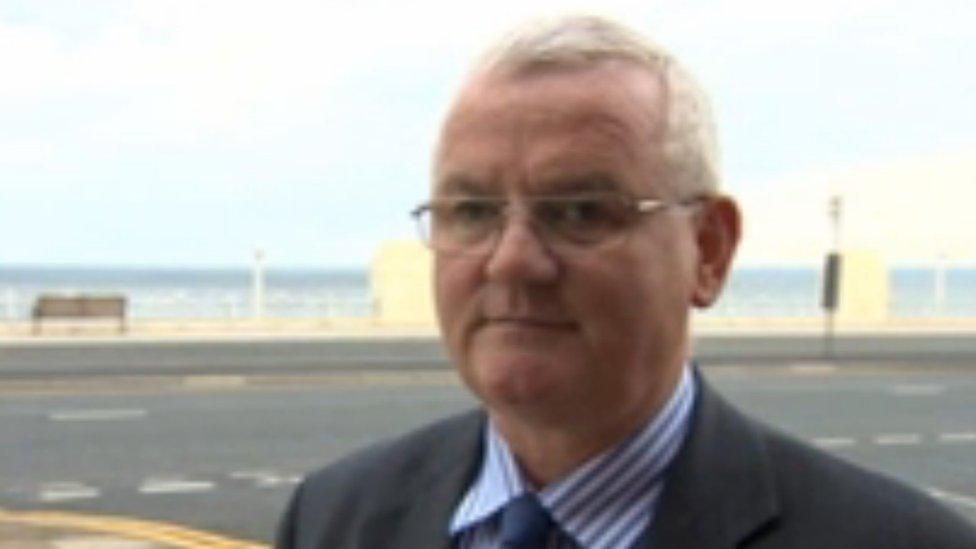
- Published14 May 2015
